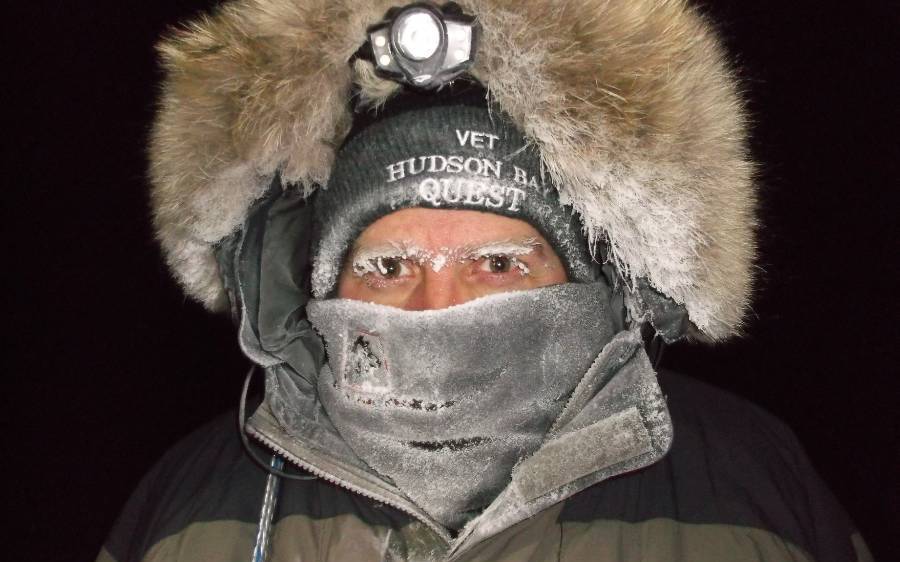Tundra to Tropics: Opportunities in Vet Med With Dr. Drew Allen
As exciting as veterinary medicine is as a profession, it’s not often associated with international adventure or politics. However, in a presentation to Utah State University’s veterinary medicine students, Dr. Drew Allen spoke about his work abroad and with the Utah State Legislature and shared how other veterinarians can create similar opportunities for themselves.
Even at first glance, Allen is an accomplished veterinarian. After earning a bachelor's degree at Utah State and doctorate at Colorado State, he joined Brickyard Animal Hospital in Millcreek, Utah, where he later became a partner. He's since served as president of the Utah Veterinary Medical Association (UVMA), became a member on the state licensing board, and was named 2009 Utah Veterinarian of the Year.
Ask Allen about his “northern offices,” however, and you’ll learn that's just the start of what makes Allen stand out.

After becoming fascinated by the athleticism of sled dogs, Allen decided to volunteer for the Hudson Bay Quest, a wilderness race in Manitoba, Canada. The event begins each year in Churchill, a small town famed for the precautions residents need to take against polar bears, and it continues across 200 miles of tundra to the next town. Allen served at the halfway point, treating sled teams as they arrived.
“We set up our checkpoint on the open tundra,” said Allen. “It was probably 100 miles from the nearest tree, in what had been a Hudson Bay trading post a century ago. It's a very unique experience to be out working as a veterinarian with your headlamp under the northern lights.”
During the presentation, Allen described the challenges of getting to such remote locations, performing 150 exams in only five hours, and even just identifying where the sled dogs were in the snow.
“The dogs hunker down and let the snow bury them,” Allen said. “I had to memorize where the teams were so I didn't step on anybody. But when a storm breaks, the dogs just start popping out, and they're like, ‘Hey, let's go for a run!’”
And of course, there was always the cold.
“It’s 35, 40 degrees below zero with 40 to 45 mile an hour winds,” explained Allen. “It's a little chilly. The most annoying part is that under the right conditions, your eyelashes and eyebrows can freeze together.”
After a successful first year, Allen continued to volunteer in Manitoba. Eventually, his experience led him to volunteer at the roughly 400-mile Femundløpet in Røros, Norway. Because Norwegian race officials required him to be licensed in the country to work the event, Allen is now qualified to work as a veterinarian in Norway as well as the United States and the province of Manitoba.
Allen also spoke to USU students about his decidedly warmer time with Pacific Partnership, an annual mission spearheaded by the U.S. Navy to bring medical, dental, engineering, and public health services to countries like Fiji, Papua New Guinea, the Philippines, and Vietnam.
Most of the medical volunteers stayed aboard the hospital ship USNS Mercy during the mission, but as a veterinarian, Allen was required to leave the vessel to offer his services. His operating rooms were often improvised spaces, including an office desk in Fiji’s Ministry of Agriculture building.
As with the far north, the tropics posed their own challenges.
“During the time it would take to spay a dog or a cat, I would sweat enough that my surgical gloves would be filled with sweat up to about my first knuckles,” Allen said.
Even when Allen isn’t outside of Utah, he still manages to find opportunities for new experiences. While state government may not have the same thrill as working in a foreign country, it can offer just as much opportunity to make a difference in the lives of animals and humans alike.
As state legislative chair of the UVMA, Allen provided expert testimony to lawmakers and participated in negotiations over new laws, including a bill aimed at targeting both domestic and animal abuse. The legislation provided protections and harsher sentences for people who abused animals, but agricultural organizations worried that it would affect common animal husbandry practices not usually thought of as cruel.
“We couldn’t even get the Farm Bureau folks and Humane Society people into the same room,” said Allen. “But as a veterinarian, they would both talk and listen to me. There was a role to play that not only benefited animals by preventing animal cruelty, but also played an important role in domestic violence prevention.”
After three years of hard work, the bill was finally passed.
Allen admittedly wasn’t able to take advantage of these opportunities right out of school. It wasn’t until he became a practice owner could he afford to take off a few weeks from work, and even then, he had to hire associate staff to ensure the hospital could function without him.
However, prioritizing that flexibility allowed Allen to seek out new experiences. His sled dog adventures began when he contacted the organization that runs the Hudson Bay Quest directly, and he became involved in state politics simply by contacting his lawmakers on subjects where he had expertise. In both cases, he was proactive in becoming involved with organizations that interested him.
“Around 10 years ago,” Allen said, “one of my associates remarked, ‘Oh, you’re off and doing all these things, and I don’t have those sorts of opportunities.’ And I thought to myself, 'Well, if you want an opportunity to do something different, seek it out and make it happen. It’s not just going to come up to you.'”

